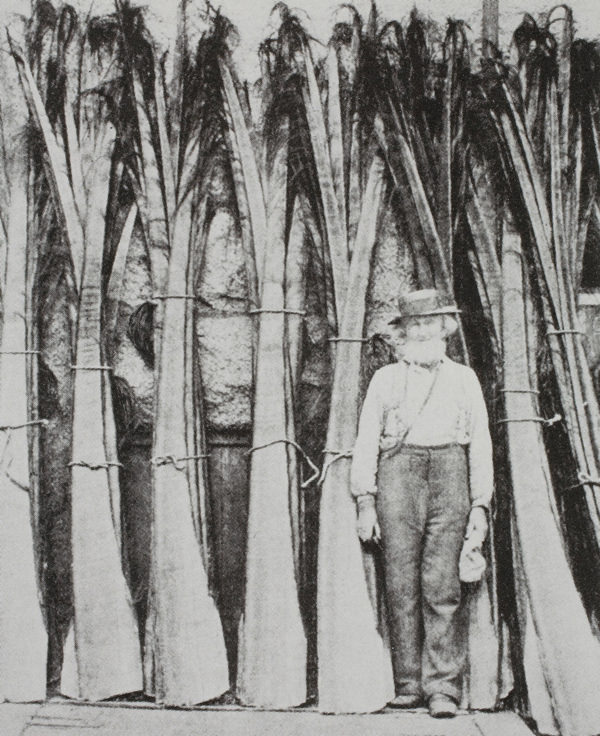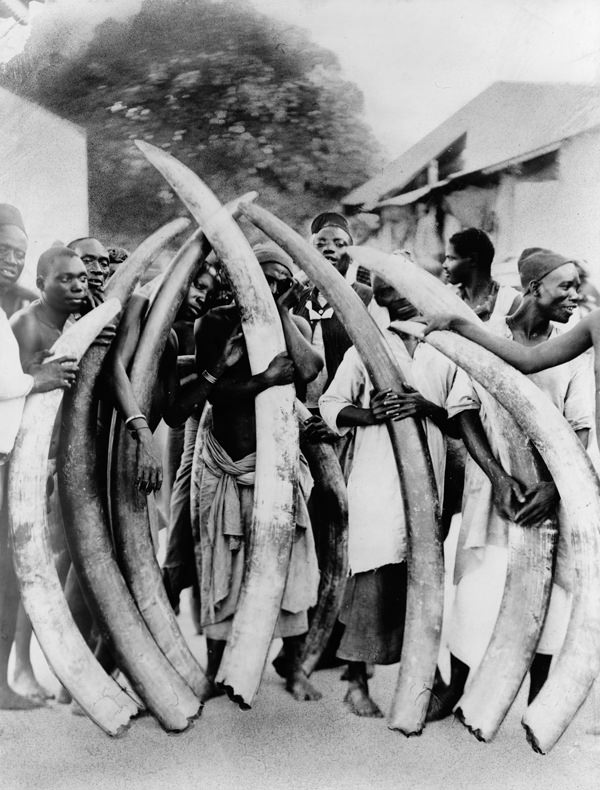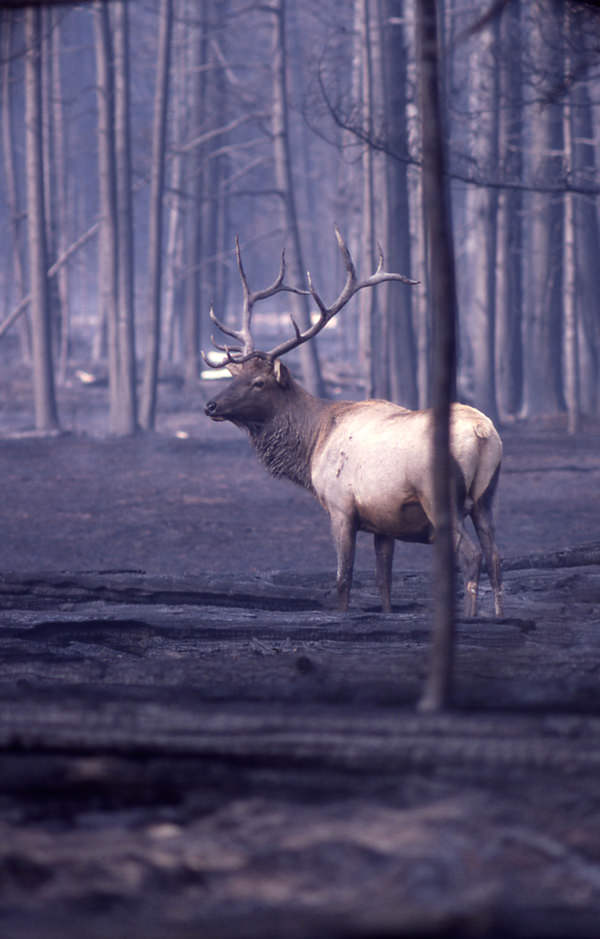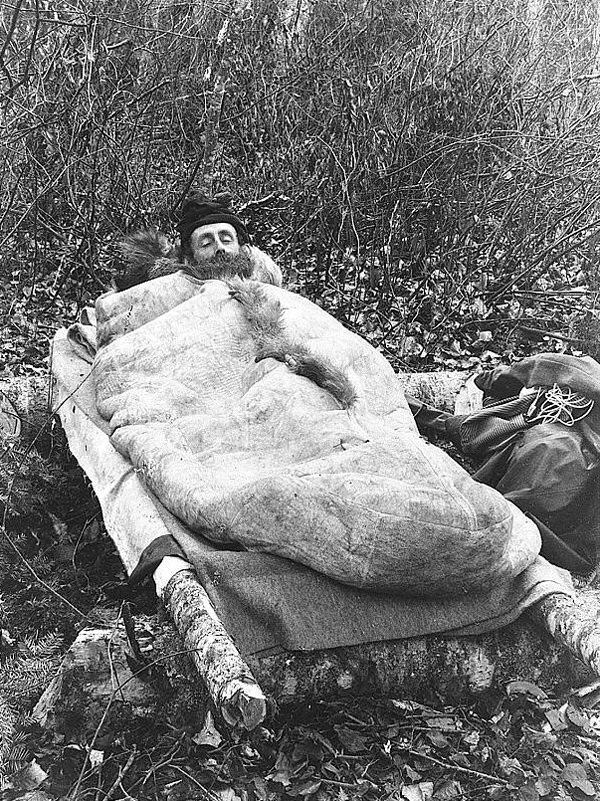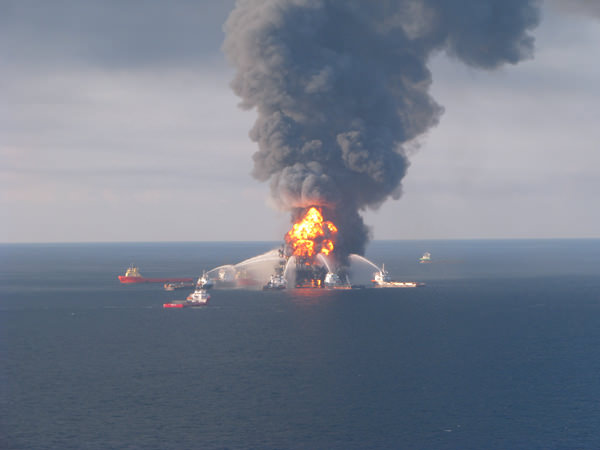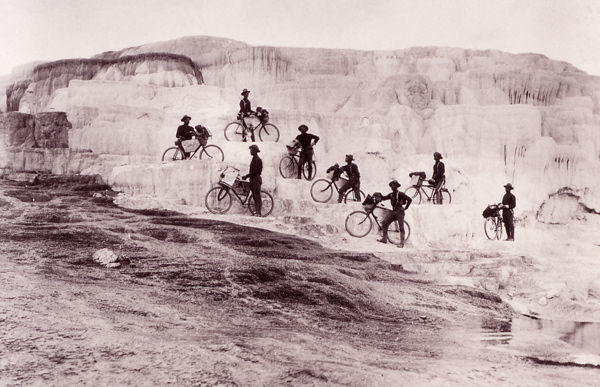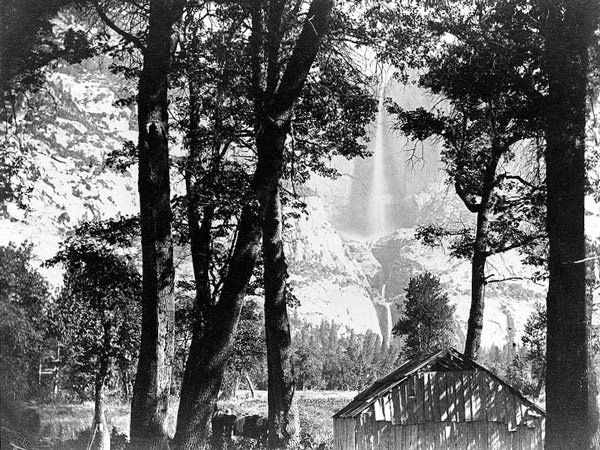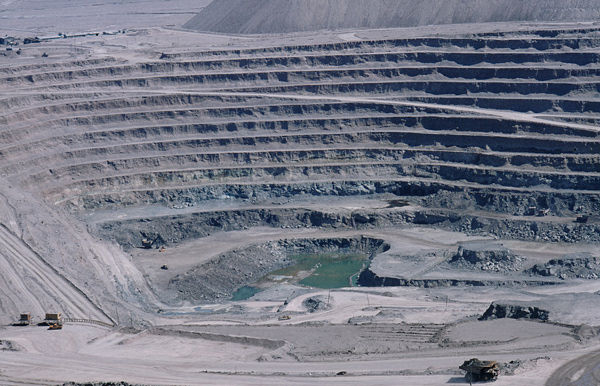The Bet was released in paperback at the end of September.
What role for historians on energy and climate?
Spoke at Brown University on the topic, “Making a Place for Historians in the Climate and Energy Debates.” My talk explored how our understandings of history are currently shaping the policy debate, and what lessons historians might offer regarding changing energy systems.
H-Net Roundtable on The Bet
The Bet was the topic of an H-Net roundtable forum, with comments from Sarah Phillips, Patrick Allitt, Peter Shulman, and Keith Woodhouse, and edited by Christopher Jones.
Nature Conservancy Science Blog review
Abrams Sustainability Seminar at Ann Arbor
Visited Ann Arbor to speak about The Bet as part of the Abrams Sustainability Seminar, an interesting effort to encourage teaching about sustainability across the disciplines. A tornado alert made it particularly memorable!
Book Talk at Carnegie Mellon University
Enjoyed talking about The Bet at Carnegie Mellon as part of their lecture series in environmental history.
Hosted “New Perspectives in Environmental History”
Yale Environmental History hosted its fourth northeast environmental history conference on April 12, with terrific papers from ten graduate students from nine different universities. Conference program available here.
Talks at Facebook and Google
I spoke about The Bet to audiences at Google and Facebook. The Google author talk is available online at https://www.youtube.com/watch?v=p9JG02YRtOc
Review in Choice, March 2014
“Carefully researched and engaging … The Bet is remarkably evenhanded in its treatment.” Choice Review by A. R. Sanderson, University of Chicago (“Highly recommended”)
Interview on Econ Talk
Interview on Green Sense Radio Show
Coverage of “The Bet” in Zeit Wissen
Journalist Robert Levine features The Bet in a recent story in German-language Zeit Wissen on the clash between optimists and pessimists about the future of the planet: “Optimisten gegnen Pessimisten”
“Earth at Stake,” Chronicle of Higher Education
NPR’s Planet Money Episode: “A Bet on the Future of Humanity”
NPR’s Planet Money organized a podcast episode around The Bet, with historical audio and a brief interview with Paul Ehrlich. Link to Planet Money episode
NPR’s Morning Edition covers “The Bet”
“The Bet” now available as an audiobook
Review of The Bet in World Economic Forum Forum:Blog
This “scholarly and engaging book… beautifully sets the context of an academic dispute between two world-class thinkers.… Sabin writes lightly and with respect . . . The result is a timely and well-considered explanation of how we’ve ended up in a debate about the existence and effects of climate change – and why it divides along political lines.” —Sheridan Jobbins, World Economic Forum Forum:Blog article link
One of the “Best Business Books of 2013.”
Bill Gates calls “The Bet” one of his 7 favorite books of 2013
Article link: Bill Gates’ Top 7 Books in 2013
The Bet “provides surprising insights for anyone involved in addressing the world’s ‘wicked problems.’… I recommend The Bet to anyone wanting to understand the history of the divisive discussions we have today, especially the stalemate over climate change.”
Q&A in HuffPost, December 11, 2013
Review of “The Bet” in the New York Review of Books, December 5, 2013
Cass Sunstein examines the lessons of “The Bet” in the December 5 issue of the New York Review of Books. “The Bet makes a convincing case that the debate between Ehrlich and Simon illuminates central issues of its era … With their contrasting narratives of looming environmental catastrophe and techno-optimism, they define important strands of the Democratic and Republican parties and indeed of American culture.” “The Battle of Two Hedgehogs.” (paywall)
Review of “The Bet” in Financial Advisor Magazine
“My pick hit of 2013, The Bet …[is] a riveting story of the clash between two outsized and highly idiosyncratic personalities … a lucid, readable gem.” —Nick Murray, Financial Advisor magazine
One of five “Books of the Year 2013.”
New Scientist magazine ranks “The Bet” one of the “Best Science Books of 2013”
Interview on Remapping Debate, November 6, 2013
Thoughtful conversation with Kevin Brown for the “History for the Future” show on Remapping Debate. audio link
Interview on MacMillan Report, October 30, 2013
Interview on “Where We Live,” CT WNPR, October 7, 2013
I discuss “THE BET” and recent environmental politics with WNPR “Where We Live” host John Dankosky. audio link
“In a 1981 Letter, Scalia Lists His GOP Bonafides” in Slate Magazine’s “The Vault”
In this letter that I found in the National Archives, Antonin Scalia, seeking appointment as Solicitor General, details his political loyalties and his experience in government and legal practice.
Interview on “Talk of the Town with Larry Rifkin”
I enjoyed talking about “The Bet” with host Larry Rifkin on his show “Talk of the Town” on WATR 1320 AM.
“Lessons From a Famous Bet,” New York Times Economix Blog, September 30, 2013
How are climate change and population growth different, and what are some of the lessons from “The Bet”? I chat with David Leonhardt of the New York Times: “Lessons From a Famous Bet.”
Lou Dobbs Tonight on Fox Business News
I discussed “The Bet,” and the current polarization of environmental politics, with Lou Dobbs on Fox Business News.
“Innovating Our Way to Energy Abundance- and Climate Change,” Time, September 13, 2013
I discuss “The Bet” with Time energy and environment reporter Bryan Walsh, including the implications for how we think about energy abundance and climate change: “Innovating Our Way to Energy Abundance- and Climate Change.”
“Want to Bet?” Slate, September 12, 2013
In a world in flux, how do we know whether things are getting better or worse for people and for the planet? I discuss the challenge of setting terms for a bet on Earth’s future: “Want to Bet?”
Interview on David Boze Show
I discuss “The Bet” and its implications with conservative talk show host David Boze on Kiro Radio out of Seattle. audio link
Radio Interview on “This Green Earth,” September 10, 2013
“$1000 Question- Did the population bomb ever explode?” Grist Magazine, September 9, 2013
My interview with Scott Rosenberg, executive editor of Grist: “$1000 Question- Did the population bomb ever explode?”
“Betting the Apocalypse,” New York Times, September 8, 2013
Link to original in the New York Times
Betting on the Apocalypse
ONE day in October 1990, the iconoclastic economist Julian L. Simon walked out to get the mail at his house in the Washington suburb of Chevy Chase, Md. In a small envelope sent from Palo Alto, Calif., he found a sheet of metal prices, along with a check for $576.07 from the biologist Paul R. Ehrlich. There was no note.
Ten years earlier, Mr. Simon and Mr. Ehrlich, joined by two scientific colleagues, had made a wager on the future prices of five metals: chromium, copper, nickel, tin and tungsten. The bet — in which the loser would pay the change in price of a $1,000 bundle of the five metals — was a test of their competing theories of coming prosperity or doom.
For years Mr. Ehrlich, the author of the landmark 1968 book “The Population Bomb,” had warned that rising populations would cause resource scarcity, even famine, with apocalyptic consequences for humanity. Mr. Simon, who died in 1998, optimistically countered that human welfare would flourish thanks to flexible markets and our collective ingenuity.
Mr. Ehrlich believed the metal prices would rise over the decade; Mr. Simon thought the prices would stay stable or even drop. Mr. Simon won: the prices of the five metals in 1990 hovered at around 50 percent of their 1980 levels, even as the world population grew by 800 million.
Conservatives have celebrated Mr. Simon’s victory ever since, using it to denounce environmentalists for alarmism and to criticize environmental regulation. The columnist George Will recently used Mr. Simon’s triumph to illustrate how “ingenuity thwarts doomsday.” In a sign of the bet’s symbolic value, the Competitive Enterprise Institute created the Julian L. Simon Memorial Award in 2001 to celebrate his “vision of Man as the Ultimate Resource.” The award trophy: a statue of a leaf with its veins made from the five metals featured in the bet.
Environmentalists, in contrast, have tended to deny the significance of the Ehrlich-Simon bet, arguing that commodity prices illustrate little about real environmental threats. Also, they say, Mr. Simon just got lucky: indeed, when economists later ran simulations for every 10-year period between 1900 and 2008, they found that Mr. Ehrlich would have won the bet 63 percent of the time. These sweeping declarations of triumph and insignificance miss the point — and the true lessons of the bet for each side.
Environmentalists need to better understand the ways in which markets for natural resources function. There is rarely a simple linear path from abundance to scarcity.
Mr. Ehrlich’s view of looming scarcity was hardly radical in the years after the 1970s oil shocks. Many investors in the late 1970s shared his faith that rising metal prices reflected finite supply and impending shortages. The Hunt brothers, for example, famously gambled billions of their oil fortune on the rising price of silver, and then lost their shirts in 1980 when prices faltered and they failed to corner the market.
During the 1980s, macroeconomic factors, including falling oil prices and economic slowdowns, far outweighed new pressures from population growth and drove down the prices of many metals. Everyday market forces — technological change, price-driven competition and new sources of supply — also helped reduce prices. The international tin cartel collapsed under pressure from new Brazilian mines. Aluminum, plastic, fiber-optic cables and satellites began to replace copper, even as copper production soared in response to 1970s highs; by 1985, the copper industry struggled to create demand.
This dynamic relationship between scarcity and abundance matters for public policy. Exaggerated fears of resource scarcity can lead to stifling price controls, panicked efforts to limit production or consumption, and public investment strategies predicated on high prices that turn out to be ephemeral.
The same thing is true in business. Solyndra, the now-bankrupt solar-panel company, failed in part because its model depended on the price of polysilicon, used by its competitors, remaining high. When prices instead collapsed, so did its competitive strategy and the company.
YET if environmentalists need to better account for human creativity and adaptability, conservatives, in turn, should better understand the limited nature of Mr. Simon’s victory.
Setting aside the vagaries of market forces, can we continue to increase resource production and adapt to unprecedented environmental changes like global warming? Our past experience should give us some hope, but that hope should be greatly tempered by the realization that climate change is an unprecedented threat, and we really might not keep pace.
Mr. Simon liked to argue that new problems prompt solutions that ultimately leave people better off than before. But we cannot surmount our challenges if we simply deny that they exist.
Instead of using science as a resource for human betterment, conservatives who reject the evidence of human-caused global warming prevent the very creative problem-solving that Mr. Simon advocated. And if environmentalists like Mr. Ehrlich hadn’t urged action back in the 1970s, would all that creativity have been channeled into the cleaner air and water that we enjoy today?
We face choices about our future direction. As Mr. Ehrlich and many other environmental scientists have documented, by pouring carbon dioxide into the atmosphere, we put things we value and love in danger, from the coral reefs to the Jersey Shore, from homes threatened by wildfire to farms endangered by drought.
And even if Mr. Simon is right that humans can adapt and prosper on this rapidly changing planet, we have to ask ourselves whether the risks and inequalities of this change are desirable.
Ultimately, humanity’s course will be determined less by iron laws of nature or by unbounded market powers, Mr. Ehrlich and Mr. Simon’s dueling lodestars, and more by the social and political choices that we make. Neither biology nor economics can substitute for the deeper ethical question: what kind of world do we want to live in?
Paul Sabin is an associate professor of American history at Yale and the author of “The Bet: Paul Ehrlich, Julian Simon, and Our Gamble Over Earth’s Future.”
A version of this op-ed appears in print on September 8, 2013, on page SR5 of the New York edition with the headline: Betting On the Apocalypse.
CSPAN2 After Words: Conversation about “The Bet” with Dina Cappiello
I discuss “The Bet” with AP environment and energy reporter Dina Cappiello: AfterWords on CSPAN2’s BookTV.
“The Big Idea: Can Innovation Save Us?” The Daily Beast, September 6, 2013
I argue in The Daily Beast that our current stalemate over climate policy has important roots in earlier battles over population growth and resource scarcity: “The Big Idea: Can Innovation Save Us?”
Review of “The Bet” in New Scientist, September 2, 2013
Environmental journalist Fred Pearce reviews “The Bet” in New Scientist: “Did a bet on metal prices save the lives of millions?”
“The Decline of Republican Environmentalism,” Boston Globe, August 31, 2013,
Link to original essay in Boston Globe.
The decline of Republican environmentalism
By Paul Sabin | AUGUST 31, 2013
TWENTY-FIVE years ago tomorrow, from the sunny decks of an excursion boat touring Boston Harbor, George H.W. Bush, then the Republican candidate for president, launched a fierce attack on Massachusetts Governor Michael Dukakis, the Democratic nominee. Bush said that Boston’s polluted waters — “the dirtiest harbor” in America — symbolized Dukakis’s failed leadership. He “will say that he will do for America what he’s done for Massachusetts,” Bush declared. “That’s why I fear for the country.” By delaying a major cleanup of the harbor, Bush said, Dukakis had cost taxpayers billions of dollars and allowed the pollution to continue, making “the most expensive public policy mistake in the history of New England.”
Bush’s attack on Dukakis stands out as perhaps the last time a prominent national Republican turned an environmental cause into a weapon against a Democratic opponent. And in that 25-year gap lies a lost path and a giant missed opportunity. Republicans no longer seriously contest the environmental vote; instead, they have run from it. Largely as a result, national environmental policy-making has become one-sided, polarized, and stuck. Republican politicians mostly deny the threat of climate disruption and block legislative solutions, while President Obama tries to go it alone with a shaky patchwork of executive actions. A middle ground on environmental policy remains a mirage.
Bush’s presidency initially promised a different path. Bush’s feelings about the environment ran long and deep. Heading a House Republican task force in 1970, he called the “interrelationship between population growth and natural resources . . . the most critical problem facing the world.” He shared the environmental movement’s goals of improving the nation’s air and water. One of Bush’s signature achievements, the Clean Air Act Amendments of 1990, instituted a cap-and-trade system to cut power plant pollution and reduce acid rain. The New York Times described the law as a “model for updating in the 1990s the other 1970s-era statutes that form the foundation of the nation’s environmental program.”
But then Bush abandoned the Republican environmental resurgence he had begun to build. By the end of his presidency, he was pitting economic growth against environmental regulation. Bush mocked 1992 vice presidential nominee Al Gore as “Ozone Man,” declaring that Gore was “so far out in the environmental extreme we’ll be up to our necks in owls and outta work for every American.”
What explains the switch? Despite significant environmental gains during his presidency, Bush’s leadership faltered as the issues grew more complex, abstract, and international. The raw sewage pouring into Boston Harbor had created a local constituency for change and a clear solution. By contrast, largely invisible and computer-modeled threats like climate change affected everyone, but far in the future. Negotiating international agreements to limit greenhouse gas emissions thus provoked fierce ideological debates over scientific knowledge, economic regulation, and national sovereignty.
Facing a conservative primary challenge and an economic downturn, Bush tacked to the right in the 1992 campaign, refusing to sign the international Convention on Biodiversity and weakening a global agreement on greenhouse gas emissions. “After those decisions,” EPA Administrator William Reilly later recalled, “it became impossible to be taken seriously when representing the environmental commitments of the Bush administration.”
Environmentalists exacerbated the Republican shift away from environmental issues by allying forcefully with the Democratic Party. Environmental groups gave Bush little credit for his accomplishments. When they denounced Bush for his failings, and allowed Democrats to claim the environmental mantle exclusively for themselves, environmentalists helped to drive both parties to the extremes. The Democrats veered toward warning of environmental apocalypse, while Republicans went to the other pole, denying the threat of environmental problems.
In Bush’s forgotten bid for environmental superiority lies a missed opportunity. The country needs constructive debate that leads to innovative approaches to environmental problems. At the time, Bush’s means, if not his ends, differed from those of many environmental advocates: Bush touted market solutions, private initiative, and informal negotiation strategies instead of costly litigation. Although Bush’s favorite strategies were often derided then, the environmental movement has increasingly embraced his approach over the past two decades. Cap-and-trade provided the centerpiece for Obama’s initial climate initiative in his first term. Green business is all the rage, and market strategies for solving environmental problems are widely accepted. Nowadays, young environmentalists are as likely to go into business as they are to pursue careers in government or advocacy.
The one place where Bush’s proposed market solutions failed to thrive was in politics. With both sides talking to themselves, the generative power of competition and debate has withered. So perhaps the first signs of new life will come when a prominent national Republican next goes after a Democrat for being weak on the environment.
Paul Sabin, who teaches American history at Yale University, is author of “The Bet: Paul Ehrlich, Julian Simon, and Our Gamble Over Earth’s Future,’’ which will be published on Sept. 3.
